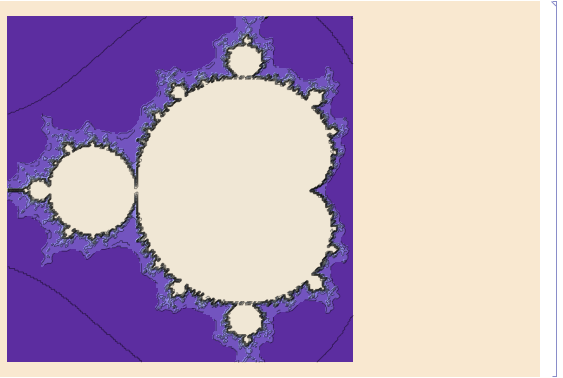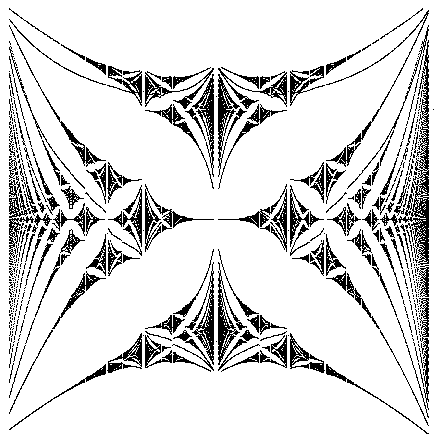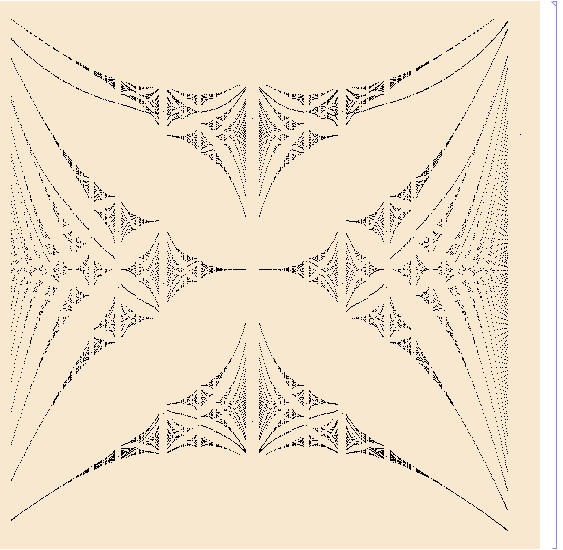You can certainly draw 2d2D fractals, eg the Mandelbrot set
ClearAll[mnd]
mnd = Compile[{{m, _Integer}, {n, _Integer}, {steps, _Integer}, \
{maxiter, _Integer}, {xmax, _Real}},
Block[{z, c, iters = 0},
z = c = -xmax + 2.*xmax*n/steps - 0.5 +
I*(-xmax + 2.*xmax*m/steps);
While[(iters < maxiter) && (Abs@z < 2),
iters++;
z = z^2 + c
];
Sqrt[iters/maxiter]
],
{{z, _Complex}, {c, _Complex}}
];
ListContourPlot[
Table[
mnd[m, n, 200, 200, 1],
{m, 1, 200}, {n, 1, 200}
],
Frame \[Rule]-> False
]

or the Hofstadter butterfly
ClearAll[matrix];
matrix[p_,q_,nu_:0]:=Module[
{sigma},
sigma=p/q;
N@SparseArray[
{{m_,m_}\[Rule]2Cos[2\[Pi]*m*p -> 2Cos[2Pi*m*p/q+nu]q + nu], {i_,j_}/;Abs[i-j]\[Equal]1\[Rule]1j] == 1 -> 1},{q,q}]]
ClearAll[attachsigma]
attachsigma[sigma_,lst_]:={sigma,#}&/@lst
fracs = Table[p/q, {q, 2, 80}, {p, 2, q}] // Flatten //
DeleteDuplicates;
pq = {Numerator@#, Denominator@#} & /@ fracs;
(ens = Eigenvalues[#] & /@ (matrix[#[[1]], #[[2]]] & /@ pq);) // Timing
pts = Flatten[#, 1] &@MapThread[attachsigma, {fracs, ens}];
plot = Graphics[
{PointSize \[Rule] PointSize[0.001001], Point[pts]},
AspectRatio \[Rule]-> 1,
ImageSize \[Rule]-> Full
]


